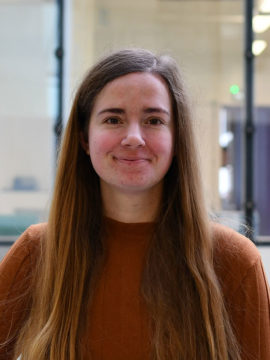Venue: Centre Broca Nouvelle-Aquitaine
Defense in french
Title
Intracellular transport of AMPA receptors and regulation by their associated proteins
Abstract
Learning and memory rely on synaptic plasticity events during which the neuron modulates the efficiency of synaptic transmission. These events require a strict spatial and temporal control of the number of alpha-amino-3-hydroxy-5-méthyl-4-isoxazolepropionate receptors (AMPAR) at the post-synaptic plasma membrane (PM), and more importantly at the synapse. This control is a challenge for neurons in which the synapse can be localized hundreds of micrometers away from the cell body and the nucleus where the genes are transcribed. The traffic and localization of AMPAR is ensured by a complex cooperation between different mechanisms: intracellular transport (IT) of neosynthetized receptors to the PM, their diffusion at the PM and stabilization at the post-synapse or their recycling during which receptors are endocytosed and degraded or inserted again at the PM. The IT of neosynthetized receptors is a major contributor in the increase of AMPAR observed at the synapse during long term potentiation (LTP). The receptors mature in the different compartments of the secretory pathway and are transported in vesicles to the PM. The IT is difficult to image as it is composed of fast small vesicles of low contrast and that are impossible to distinguish from those containing recycled receptors. Thanks to a molecular tool allowing the retention of AMPAR in the endoplasmic reticulum combined with video-microscopy, our lab showed that the IT of GluA1 has stable characteristics in basal conditions. This IT is regulated by the Ca2+ concentration that varies after LTP induction, like in the late phase during which the number of vesicles and their speed are increased. It is also modulated by point-mutations of phosphorylation sites of AMPAR C-terminal domain (CTD).
Our objective was to provide insight in the molecular mechanisms that govern this regulation. AMPAR have many interactors, including auxiliary proteins, membrane proteins that modulate their properties and trafficking. Gamma8, the most abundant auxiliary protein of the hippocampus, has a major role for LTP expression. The IT we observed in Gamma8-KO mice neurons is decreased compared to the WT, both in terms of number of vesicles and speed, while the time they spent in pause is increased. Our data suggest that Gamma8 participates in GluA1 IT.
AMPAR also interact with cytosolic proteins via their CTD. GluA1 has two known cytosolic interactors: 4.1N and SAP97. The interaction with 4.1N is governed by two phosphorylations. 4.1N is involved in the exocytosis of the receptor especially during LTP. SAP97 is involved in the exit of the Golgi apparatus and is associated with the molecular motor MyoVI. In addition of its role in exocytosis, our data suggest that 4.1N regulates GluA1 IT during LTP but not in basal conditions. Indeed, after LTP induction, the vesicles containing the S816A S818A mutant that doesn’t bind 4.1N show decreased speeds. Conversely, SAP97 regulates the IT in basal conditions by controlling the number of vesicles budding from the Golgi apparatus and by modulating their speed, a regulation that could be maintained after LTP induction.
The most abundant AMPAR are GluA1/GluA2 heteromers. We characterized the IT of the GluA2 subunit and found that it exhibits the same characteristics as GluA1. GluA2 binds other proteins that might regulate the IT during activity, but their effect need to be determined. We propose that the IT of AMPAR is strongly modulated by its auxiliary proteins and cytosolic interactors of its CTD.
Keywords : AMPA receptors, synaptic plasticity, video-microscopy, intracellular transport
Jury
Nathalie SANS (Présidente),
Cyril Hanus (Rapporteur),
Julie Perroy (Rapportrice),
Eric Boué-Grabot (Invité),
Françoise Coussen (Directrice de thèse).

Caroline Bonnet
Team Choquet
IINS
Thesis supervisor: Françoise Coussen

